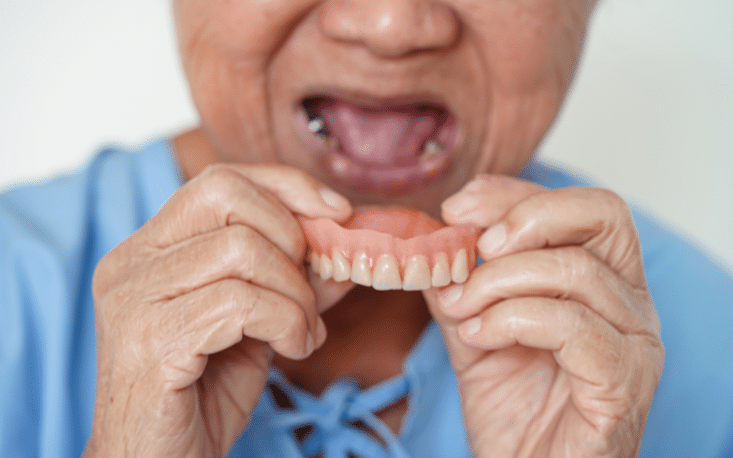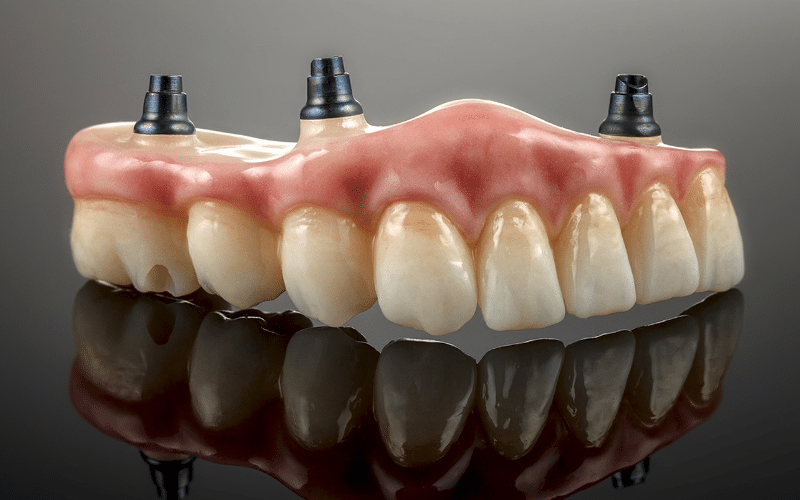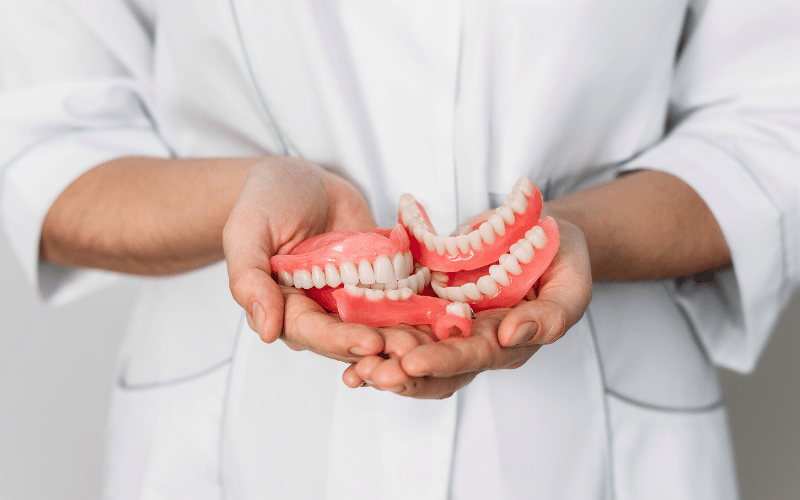ONLINE SCHEDULING AND VIRTUAL CONSULTS AVAILABLE

Full or Partial Dentures: Which Option Fits Your Needs?

Choosing between full or partial dentures can feel like a big decision. Whether you’ve lost several teeth or are facing the need for a complete set, understanding your options can make all the difference.
Dentures not only restore your smile but also impact your comfort, speech, and eating habits.
In this blog, we’ll break down the differences between full and partial dentures to help you make an informed choice. You’ll learn about the benefits of each option, what to expect during the fitting process, and how to care for your dentures to keep them in top shape.
Let’s dive into how the right denture option can enhance your quality of life and boost your confidence.
Full Dentures
Full dentures, often referred to as complete dentures, are designed to replace an entire set of upper or lower teeth. They serve as a comprehensive solution for those who have lost all their natural teeth in one or both arches.
What to Know About Full Dentures?
- Definition and Purpose: Full dentures are removable appliances crafted from acrylic resin. They fit over the gums, providing support for facial muscles and allowing for normal chewing and speaking functions.
- Typical Cases: Full dentures are recommended for individuals who have lost all their teeth due to decay, disease, or injury. They are a common solution for those who need a full mouth restoration.
- Benefits: Full dentures restore your smile and improve your ability to speak and chew. They also support your facial structure, helping to prevent the sunken appearance that often accompanies tooth loss.
Partial Dentures
Partial dentures offer a versatile solution for those missing only a few teeth. They bridge the gap created by lost teeth while preserving remaining natural teeth.
What to Know About Partial Dentures?
- Definition and Purpose: Partial dentures consist of replacement teeth attached to a gum-colored base. They are held in place by metal clasps or precision attachments that connect to existing teeth.
- Suitable Situations: Partial dentures are ideal when one or more teeth are missing, but some natural teeth remain. They help maintain the proper alignment and function of the remaining teeth.
- Advantages: Partial dentures are less invasive than full dentures and can be a less costly option. They also help prevent the shifting of remaining teeth, which can occur when gaps are left unaddressed.
Comparing Full and Partial Dentures
Choosing between full and partial dentures depends on various factors, including the extent of tooth loss and personal preferences.
Key Differences and Considerations:
- Differences: Full dentures replace all the teeth in an arch, while partial dentures replace only some. Full dentures require complete removal of any remaining teeth in the arch, whereas partials work around existing natural teeth.
- Oral Function and Comfort: Full dentures may take longer to adjust to and may affect speech and chewing initially. Partial dentures often offer better comfort and function since they preserve more natural teeth.
- Aesthetic Considerations: Both types of dentures are designed to look natural. Full dentures cover the entire gum line, while partials blend seamlessly with the remaining teeth.
Factors to Consider When Choosing Dentures
Several factors influence the decision between full and partial dentures. Understanding these can help you make the best choice for your needs.
Considerations for Denture Selection:
- Oral Health Status: The condition of your remaining teeth and gums is crucial. If you have healthy teeth that can support a partial denture, this may be a preferable option.
- Lifestyle and Preferences: Consider how dentures fit into your daily life. Your lifestyle, including dietary habits and how often you need to remove dentures, can impact your choice.
- Cost and Insurance: Dentures can be a significant investment. Review your budget and check with your insurance provider to understand coverage and financial options.
The Process of Getting Dentures
Getting dentures involves several steps, from initial consultation to final fitting. Understanding the process can help you prepare for what to expect.
Steps and Tips:
- Fitting and Customization: Your dentist will take impressions of your mouth to create custom dentures. This process involves multiple visits to ensure a perfect fit.
- What to Expect: The fitting process includes adjustments to ensure comfort and functionality. Your dentist will guide you through care instructions and any adjustments needed.
- Adjusting to New Dentures: It may take time to get used to your new dentures. Follow your dentist’s advice on oral hygiene and denture care to ensure a smooth transition.
Consulting with Your Dentist
Professional guidance is essential when choosing and fitting dentures. Your dentist will help you navigate the options and ensure the best outcome for your dental health.
Why Consult Your Dentist?
- Importance of Guidance: Your dentist can assess your oral health and recommend the best denture option based on your specific needs and preferences.
- Discussing Options: Have a detailed conversation with your dentist about your lifestyle, expectations, and any concerns you might have about dentures.
- Follow-Up Care: Regular check-ups are vital to ensure your dentures remain comfortable and effective. Your dentist will provide ongoing support and adjustments as needed.
Choosing between full or partial dentures is a significant decision that impacts your smile, comfort, and oral health. Understanding your options and considering factors like oral health, lifestyle, and budget will help you make the best choice for your needs. Your dentist plays a crucial role in guiding you through the process, ensuring a perfect fit, and addressing any concerns. Embrace this opportunity to restore your confidence and enjoy a functional, beautiful smile with the right dentures for you.





